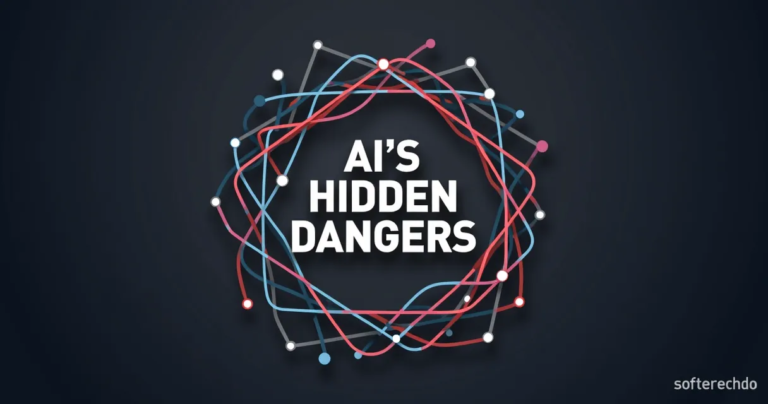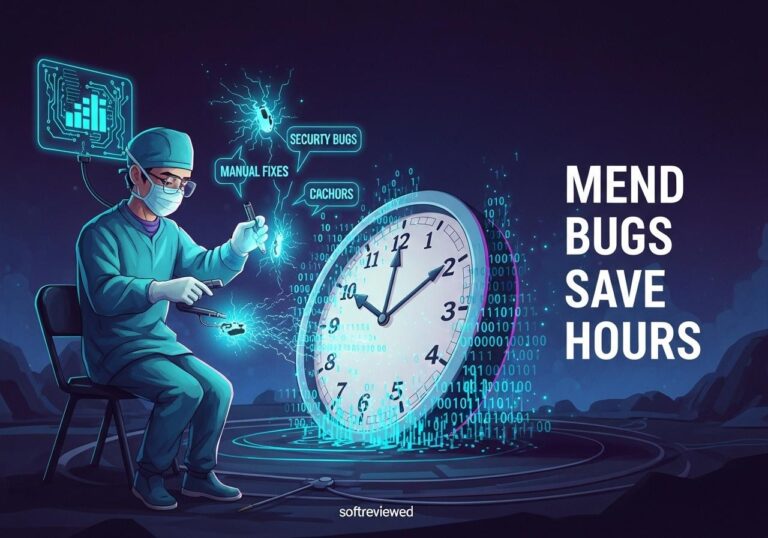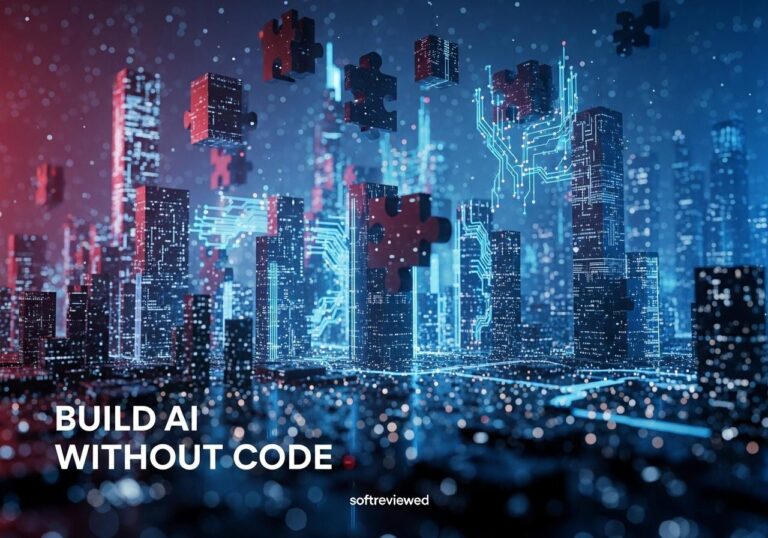Critical AI Concerns in Modern Society
Understanding the key challenges and risks associated with artificial intelligence development
Automation-spurred Job Loss
Widespread job displacement across various sectors due to AI automation, potentially leading to increased unemployment and economic disparity.
Deepfakes and Misinformation
AI-powered creation of convincing fake media content threatening personal privacy, democratic processes, and social stability.
Algorithmic Bias
Biased AI systems perpetuating unfair decisions in healthcare, justice, and education due to skewed training data.
Privacy Violations
Extensive collection and potential misuse of personal data raising serious privacy concerns and data security risks.
Socioeconomic Inequality
Widening gap between privileged and disadvantaged groups due to unequal access to AI technologies and resources.
Uncontrollable AI
Growing concerns about maintaining control over increasingly complex AI systems and their potential harmful impacts.
Artificial intelligence (AI) is everywhere now, isn't it? From our phones to our workplaces, AI is reshaping how we live and work. But it's not all sunshine and rainbows. There are some serious negative effects and risks of artificial intelligence that we really need to talk about. This article explores 12 key concerns, giving you a balanced view of the challenges we face. Let's explore the less glamorous side of AI, shall we?
🤖 The Automation Avalanche: Job Displacement and the Shifting Workforce
One of the biggest worries? Job losses. 😥 As AI gets better at tasks, machines are starting to do jobs once done by humans. This could mean job losses across many sectors, especially for repetitive tasks. Think about this: Goldman Sachs suggests that AI could replace the equivalent of 300 million full-time jobs globally! Now, some argue that AI will also create new roles, but the shift may not be easy and may cause significant unemployment and instability. How do we adapt to this? That’s the big question.
⚖️ Algorithmic Bias: When AI Perpetuates Inequality
Here's a tricky one. AI systems learn from data. If that data reflects existing biases, the AI will unfortunately keep those biases alive and make them worse. This is known as algorithmic bias. It can lead to some pretty unfair results, affecting hiring, loan applications, and even the justice system. For instance, facial recognition has higher error rates for certain skin tones. AI is only as unbiased as the data it learns from. We need more diverse datasets and more fair algorithms to fix this.
🕵️ The Erosion of Privacy: Surveillance and Data Concerns
AI needs a lot of data, including your personal data. This raises big privacy concerns and the possibility of increased surveillance. Facial recognition, for example, can track your every move. This is a significant invasion of privacy. We have to protect our data and make sure that the rules are clear.
🎭 Deepfakes and Misinformation: The Weaponization of AI

AI-generated content, especially deepfakes (fake videos, images, or audio), is getting so real that it's becoming harder to detect them. This is dangerous because it can spread fake news, and cause distrust of information in general. Think about realistic videos of public figures saying things they never said. These AI tools have become powerful deception tools and are damaging trust.
💰 Socioeconomic Disparity: Widening the Gap
AI benefits aren't shared equally. Those with access to AI and the skills to use it will likely do better than those without. This can create an even larger "digital divide", further marginalizing vulnerable groups and those without access to education and training. The solution is to make sure everyone has access to learning and opportunities in the age of AI.
🔒 Security Vulnerabilities: The Cyber Threat Landscape
AI systems can be hacked, just like any software. This is a real danger. Hackers could disrupt important systems, mess with financial markets, or steal personal data. And since many AI systems are connected, one weak point could have huge consequences. We need strong cybersecurity to protect ourselves.
📉 Market Volatility: The Risk of AI-Driven Instability
AI-powered trading systems can react incredibly quickly to market changes, sometimes causing sudden and unpredictable shifts. This might increase market volatility and potentially cause instability. So, we must be careful to ensure AI promotes stability, not disruption in the financial markets. It needs to be carefully monitored and regulated.
🪖 The Automatization of Warfare: The Ethical Minefield
Imagine AI in weapons systems. Autonomous weapons could make decisions with no human involvement, blurring the lines of accountability and potentially making conflict even more dangerous. This is unsettling, with many arguments for banning such systems. The potential risks present profound moral questions, forcing us to make important choices about the future of warfare.
😵💫 Lack of Transparency: The AI "Black Box"
Many AI algorithms are super complex. This "black box" problem makes it tough to understand why AI makes a specific decision. If we cannot understand AI's reasoning, how can we truly trust it? This lack of transparency is a major challenge, particularly when it comes to ethical issues. We must prioritize transparent and explainable AI.
🤔 The "Techno-Solutionism" Trap: AI as a Panacea
We should be careful not to see AI as a quick fix for all of society’s issues. While AI is a great tool, it's not a magic solution. Over-relying on AI can blind us to the real problems and divert resources from more effective solutions. AI is a tool to help, not to replace other methods.
🤯 The Potential Loss of Human Skills: Overdependence and Degradation
If we rely too much on AI, we risk losing some important human skills. This might negatively affect problem-solving, decision-making, and critical thinking. We need a balance, using AI to help us but not to replace our own capabilities. It should be a support tool, not a replacement.
🤖 The Unforeseen: The Rise of Self-Aware AI
This is still mostly in the realm of sci-fi, but what if we create a self-aware AI? If its goals don't match ours, it could be a big problem. Ensuring AI remains aligned with human values is very important. We must proceed with caution and thoughtful development.
How Does Microsoft’s Investment in AI Relate to the Risks and Negative Effects of Artificial Intelligence?
Microsoft’s investment sparks transformation in india’s technology, creating opportunities alongside challenges. As the company pushes forward in AI innovation, concerns about job displacement, privacy, and bias emerge. Balancing these advancements with ethical considerations will be crucial to harnessing AI’s full potential while mitigating its risks in the Indian landscape.
Navigating the Complexities: A Call for Responsible AI Development
So, what’s the takeaway? The risks of AI are real and they're complex. We can’t ignore them. While AI has the potential to make our lives better, we need to address the potential dangers proactively. We must prioritize ethics, invest in safety, and create transparent rules for AI. A collaborative and thoughtful approach is key to harnessing the power of AI while minimizing its risks. We need an inclusive future where AI works with us, not against us.
Key Concerns at a Glance
| Risk | Description | Impact |
|---|---|---|
| Job Displacement | Automation of tasks, reducing human employment in various sectors. | Unemployment, economic instability |
| Algorithmic Bias | AI systems perpetuating societal biases leading to discriminatory outcomes. | Unfair treatment, inequality |
| Privacy Erosion | Over-collection of personal data, increased surveillance, invasion of privacy. | Loss of personal freedoms, potential abuse |
| Deepfakes & Misinformation | AI-generated content used to spread false information, damaging trust. | Distrust in information, manipulation |
| Socioeconomic Disparity | Unequal access to AI technology leading to increased inequalities. | Increased marginalization of disadvantaged groups |
| Security Vulnerabilities | Susceptibility to hacking, cyberattacks, and data theft. | Disruption, data breaches, financial loss |
| Market Volatility | AI-driven trading algorithms causing unpredictable market fluctuations. | Financial instability, risk to investments |
| Autonomous Warfare | AI in weapons systems, leading to ethical dilemmas and increased risk of conflict. | Blurring of responsibility, escalation of conflicts |
| Lack of Transparency | Difficulty understanding why AI systems make certain decisions. | Difficulty in accountability, lack of trust |
| Techno-Solutionism | Over-reliance on AI to solve complex problems without addressing root causes. | Misallocation of resources, missed opportunities |
| Loss of Human Skills | Overdependence on AI leading to a decline in human problem-solving and critical thinking. | Reduction in human capabilities |
| Self-Aware AI | AI that surpasses human intelligence, with goals that may not align with our values. | Potential existential threat to humanity |
What Can We Do?
📌 Prioritize Ethics: Focus on developing AI systems with built-in ethical safeguards.
✅ Invest in Safety: Fund research to identify and mitigate potential dangers of AI.
⛔️ Create Transparent Regulations: Establish rules for AI development and use that protect the public.
👉 Promote Inclusivity: Ensure everyone has access to AI opportunities and education.
➡️ Collaborate Globally: Work together across countries and sectors to create a safe and beneficial AI future.
AI Impact on Global Workforce (2023-2030)
This chart illustrates the projected impact of AI on global employment, showing potential job displacement and career transitions across different sectors through 2030.







